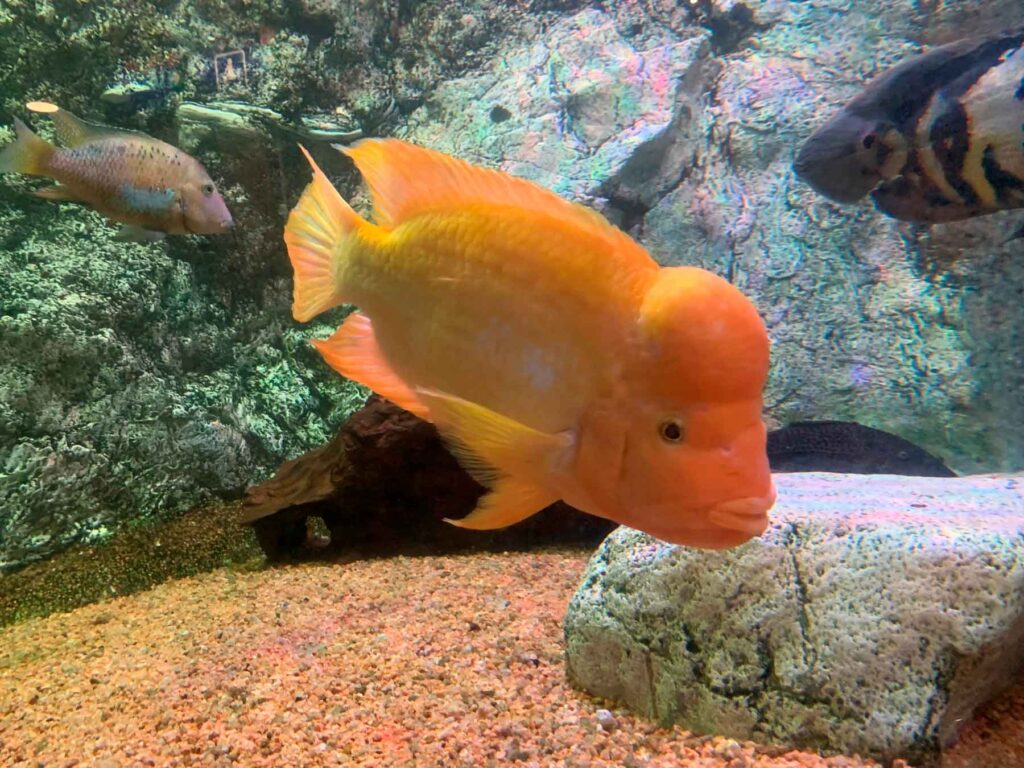
Midas cichlid
Amphilophus citrinellus
MAXIMUM LENGTH

24 cm
FEEDING

Omnivore
ACTIVITY

Diurnal
They live in vertical rocky channels and use crevices for laying eggs and protecting the young. They live in lakes and are uncommon in rivers, although they can inhabit low watercourses where the water is calm. There are different colourings, ranging from white to almost black, including orange and yellow, which are the most common. Eggs are laid on hard substrates and the two parents take care of the eggs and fry for several weeks. They feed on snails, small fish, insect larvae, worms and bottom organisms.
Interesting facts
There is sexual dimorphism. Males are larger, and adult specimens have a hump on the head, which is much more pronounced than in females.
Distribution
Conservation status
